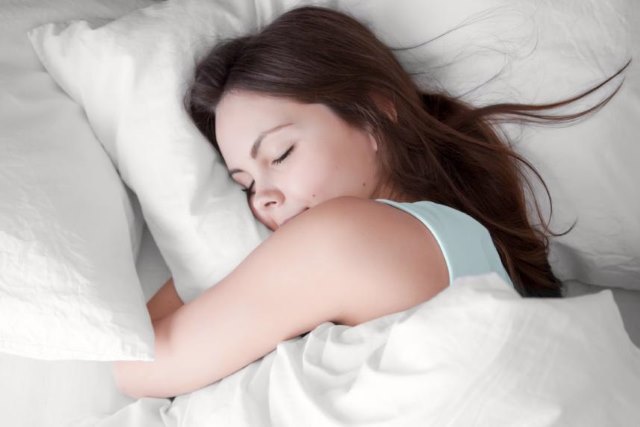Caffeine Chronicles: How Adenosine, Cortisol, and Melatonin Play a Role in Your Nightly Symphony

Planning to indulge in a cozy cup of tea or coffee before bedtime? You might want to rethink that evening ritual. Here’s the lowdown on why steering clear of caffeine a few hours before hitting the hay could be the secret sauce for a night of blissful slumber. And hey, we’re not just pulling this from the air; sleep gurus and some fancy scientific studies are backing us up.
- Adenosine Inhibition: Imagine adenosine as your brain’s bedtime buddy, nudging you toward sweet dreams. Well, caffeine decides to be the party crasher, blocking adenosine receptors and leaving your brain clueless about the whole “it’s time to sleep” memo. Dr. Matthew Walker, the sleep whisperer, breaks it down in his book “Why We Sleep.”
- Increased Cortisol: Dr. Michael Breus, the sleep maestro, spills the beans on cortisol. That’s your stress hormone, and caffeine is like its personal cheerleader. It stimulates cortisol release, turning your peaceful pre-sleep wind-down into a stress-fueled dance party. Not exactly the vibe you’re going for, right?
- Reduced Melatonin Production: A bunch of brainy folks in a lab coat confirmed in the Journal of Clinical Sleep Medicine that caffeine messes with melatonin – your sleep-wake cycle commander. Sip on that cup of Joe too late, and you’re basically telling melatonin, “You’re not needed here tonight.”
- Prolonged Alertness: The Sleep Foundation, the sleep sheriffs, advise a caffeine curfew at least 4-6 hours before bedtime. Why? Because caffeine’s buzz doesn’t pack up shop right away. It’s like having an overenthusiastic guest at your sleep soiree, refusing to leave when the party’s over.
- Disrupted Sleep Stages: Picture your sleep as a well-choreographed dance, with different stages taking center stage. Caffeine? It’s the rogue dancer throwing off the routine. A deep dive into “Sleep Medicine Reviews” shows how caffeine can lead to a sleep stage mutiny, robbing you of the good stuff – that deep, restorative sleep.
So, what’s the bedtime tea or coffee verdict? Downing these drinks before bedtime could mean wrestling with sleep demons like difficulty falling asleep, midnight rendezvous with wakefulness, lackluster sleep quality, and daytime fatigue. And no one wants that.
Take a tip from the sleep sages – folks like Dr. Walker and Dr. Breus – and consult sleep sanctuaries like the National Sleep Foundation. If you’re still craving a warm beverage, make it a caffeine-free affair with chamomile tea or the classic warm milk. And remember, your caffeine sensitivity is as unique as your taste in bedtime stories, so adjust the timing based on how your body takes the cue. Sweet dreams, sleep trailblazer!
Caffeine-free Option
Chamomile tea is an herbal tea made from the dried flowers of the chamomile plant (Matricaria chamomilla or Chamaemelum nobile). Chamomile is a small, daisy-like flower with a gentle and distinct aroma. The tea has been consumed for centuries for its potential health benefits and soothing properties.
Here are some key characteristics and information about chamomile tea:
Flavor Profile: Chamomile tea is known for its mild, floral, and slightly sweet flavor. It’s often described as having a calming and relaxing taste.
Appearance: The tea is typically golden or light amber in color, reflecting the hues of the chamomile flowers.
Health Benefits: Chamomile tea is renowned for its potential health benefits, particularly its calming and sleep-inducing properties. It’s often used as a natural remedy for promoting relaxation and alleviating stress. Additionally, chamomile is believed to have anti-inflammatory and antioxidant properties.
Relaxation and Sleep Aid: One of the most well-known uses of chamomile tea is as a sleep aid. The tea contains compounds like apigenin that may interact with receptors in the brain, promoting relaxation and potentially aiding in the management of insomnia.
Digestive Aid: Chamomile tea is also recognized for its digestive benefits. It may help soothe an upset stomach, reduce indigestion, and alleviate symptoms of irritable bowel syndrome (IBS).
Anti-Inflammatory Properties: Some studies suggest that chamomile may have anti-inflammatory effects, making it potentially beneficial for conditions involving inflammation, such as skin irritation or mild skin conditions.
Preparation: To make chamomile tea, dried chamomile flowers are steeped in hot water. Typically, a teaspoon of dried chamomile flowers is used per cup of water. The tea is allowed to steep for several minutes to extract the flavors and potential health-promoting compounds.
Caffeine-Free: Chamomile tea is naturally caffeine-free, making it a popular choice for those looking to enjoy a warm and comforting beverage without the stimulating effects of caffeine.
Whether enjoyed for its taste, potential health benefits, or as a bedtime ritual, chamomile tea remains a popular and widely consumed herbal infusion. It’s a gentle option that has found its place in various cultures around the world for its soothing qualities.




